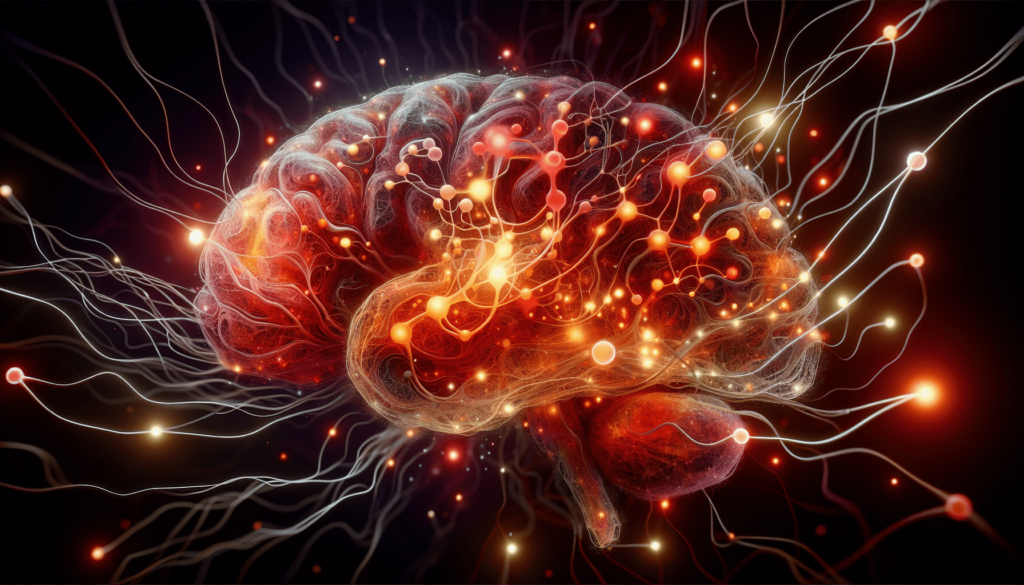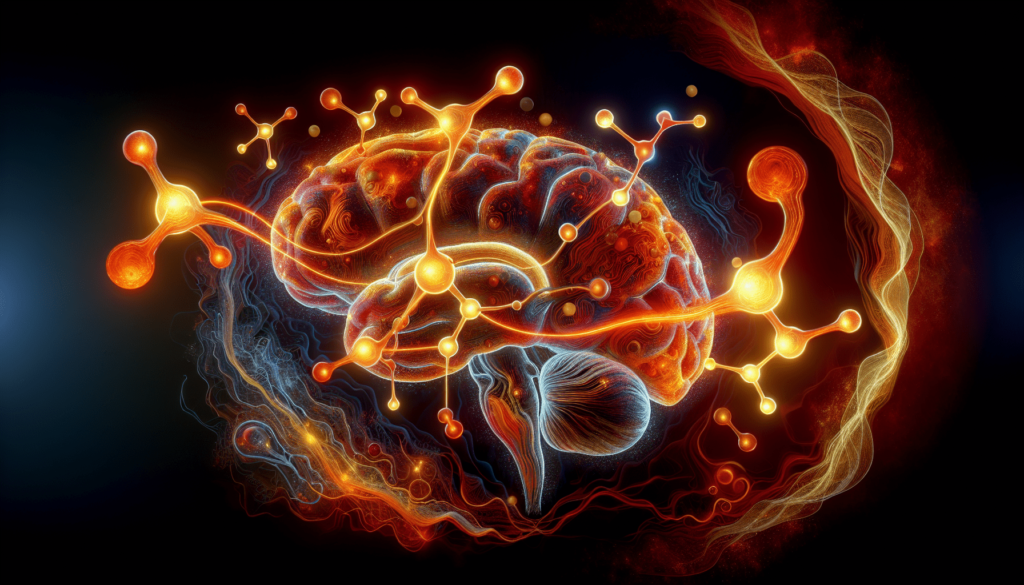Have you ever found yourself pondering what drives human attraction and desire? It’s fascinating how complex and influential our hormones are, especially when it comes to the feeling of lust. Although lust can seem like a mere sensation or emotion, it’s actually a deeply rooted biological process involving complex chemistry in your brain and body. Understanding the hormones involved can offer you a glimpse into why you feel the way you do when attraction strikes.
The Role of Hormones in Human Behavior
Hormones are chemical messengers produced by glands located throughout your body, and they play a crucial role in regulating various body functions. From growth to mood, they affect almost every aspect of your life. When it comes to emotions like lust, hormones become particularly intriguing.
What Are Hormones?
Table of Contents
Hormones are chemicals released by various glands to regulate bodily functions and influence behavior. You can think of them as the architects controlling everything from your metabolism and immune system to your emotional well-being. They travel through your bloodstream to target organs and tissues, delivering messages that instruct them on what to do and when to do it.
How Do Hormones Influence Emotions?
Your emotions are intricately tied to hormones. When you experience a feeling, it’s often due to hormonal fluctuations in your body. For instance, stress hormones like cortisol can make you feel anxious or overwhelmed, while feel-good hormones like serotonin and dopamine can boost your mood. These hormonal changes can be triggered by various external and internal factors, making emotions a complex but fascinating area of study.
Key Hormones Involved in Lust
When you talk about lust, you’re essentially discussing a cocktail of hormones that work together to create that overpowering feeling of attraction and desire. While several hormones are at play, a few stand out as the primary drivers.
Testosterone: The Powerhouse of Sexual Desire
Testosterone is often dubbed the “sex hormone,” and for good reason. It’s present in both men and women, though in different quantities, and plays a significant role in sexual interest and behavior. In men, it is largely produced in the testes, while in women, it is produced in smaller quantities by the ovaries and adrenal glands.
How Testosterone Functions
Testosterone influences your drive by affecting areas of the brain responsible for the regulation of sexual desire. It doesn’t only fuel physical attraction; it can also prompt aggression and competitiveness—traits often associated with mating and reproduction.
| Hormone | Main Role in Lust |
|---|---|
| Testosterone | Increases libido, enhances sexual desire |
Estrogen: More Than Just a Female Hormone
While estrogen is primarily associated with female reproductive health, it also influences sexual desire in both genders. In women, estrogen levels fluctuate throughout the menstrual cycle, leading to variations in libido.
Estrogen and Attraction
Estrogen enhances sensitivity to touch and can heighten sexual arousal. When levels are high, women might experience a stronger inclination toward sexual activity, as estrogen also stimulates the production of vaginal lubrication and supports sexual function.
| Hormone | Main Role in Lust |
|---|---|
| Estrogen | Modulates libido, enhances sensitivity |
Dopamine: The Feel-Good Chemical
Dopamine is a neurotransmitter that plays a crucial role in the brain’s reward system. When you experience pleasure, whether from food, music, or intimacy, dopamine is released, creating feelings of enjoyment and satisfaction.
Dopamine and Pleasure
In the context of lust, dopamine reinforces the desire to seek out pleasurable activities, acting as a sort of motivator for pursuing satisfaction, including sexual activity. The anticipation of reward significantly contributes to the feelings of lust.
| Hormone | Main Role in Lust |
|---|---|
| Dopamine | Enhances pleasure, reinforces desire |
Oxytocin: The Bonding Hormone
Oxytocin, often referred to as the “cuddle hormone,” is known for its role in promoting bonding and emotional closeness. It’s released during intimate moments, contributing to your feelings of trust and connection.
Oxytocin’s Role in Connection
While oxytocin is more closely linked with emotional bonding than raw lust, its release during sexual encounters can deepen emotional connections, creating an intricate interplay between lust and love.
| Hormone | Main Role in Lust |
|---|---|
| Oxytocin | Promotes bonding, enhances trust |
Serotonin: Regulating Mood and Desire
Serotonin is another neurotransmitter that affects a range of behaviors, including mood and sexual desire. When serotonin levels are balanced, you’re likely to feel content and happy.
The Double-Edged Sword of Serotonin
Interestingly, high serotonin levels can reduce libido, acting as a mechanism for your body to maintain focus and energy by avoiding distractions. However, lower serotonin levels can sometimes lead to increased sexual desire by reducing inhibition.
| Hormone | Main Role in Lust |
|---|---|
| Serotonin | Regulates mood, balancing desire |

The Complex Interplay of Hormones
The orchestration of these hormones can be likened to a symphony, where each hormone plays its part, contributing to the overall experience of lust. This interplay is sophisticated, and even minor alterations in hormonal levels can influence your feelings and behavior significantly.
Variability and Balance
Your hormonal balance is affected by numerous factors, including age, lifestyle, stress levels, and even diet. Understanding these variables can help you gain better insight into not only how you feel but why you feel that way at different times.
Age and Hormonal Shifts
As you age, hormonal levels naturally fluctuate. For example, testosterone levels tend to decrease in men as they grow older, which may impact libido. Women experience significant hormonal shifts during menopause, affecting their sexual health and desire.
Lifestyle Factors and Their Influence
Your lifestyle choices can also influence your hormonal balance. Regular exercise, for example, is known to boost testosterone and endorphins, enhancing mood and potentially increasing libido. On the flip side, chronic stress can elevate cortisol levels, which may interfere with sexual desire.
The Psycho-Emotional Aspect of Lust
While hormones are powerful drivers, it’s important to remember that your emotions are also shaped by cognitive and psychological factors. Your past experiences, personal values, and the context of a situation can influence how you perceive and respond to feelings of lust.
Cognitive Influences on Desire
Cognitive processes like attention, memory, and beliefs about sexuality and relationships can affect your experience of lust. How you think about attraction and desire plays a significant role in how you experience these emotions.
Emotional Intimacy and Lust
Lust doesn’t exist in a vacuum. Emotional intimacy and trust can amplify the feeling, transforming it from a fleeting desire into a more profound connection. This intricate blend of emotion and biology showcases just how complex the human experience of lust truly is.

Conclusion
Understanding the hormonal influences on lust offers insight into one of human behavior’s most intriguing aspects. Hormones like testosterone, estrogen, dopamine, oxytocin, and serotonin all play their parts, crafting an intricate symphony that drives attraction and desire. However, your experience of lust isn’t solely biological—it’s a complex interplay of instincts, emotions, and social influences. Recognizing these elements can lead to a deeper comprehension of yourself and your relationships.
Overall, grasping the intricacies of hormones doesn’t only demystify the science of lust but also enriches your understanding of human nature itself. With balanced hormones and mindful introspection, you can better navigate the powerful emotions that come with attraction and desire. Whether it’s a fleeting moment of infatuation or the deeper connection of love, understanding the various elements at play gives you the power to better comprehend your own experiences and relationships.




